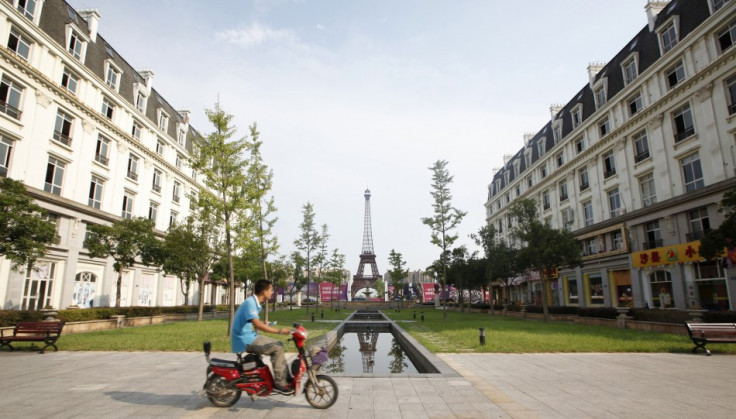China Needs $6.8tn to Fuel Urbanisation

China would have to spend no less than $6.8tn over the next two decades to integrate hundreds of millions of rural families expected to become urban dwellers by 2030.
Over one billion Chinese, or 70% of the country's population, are forecast to settle in cities by 2030.
The required investment to improve housing quality and living conditions could surge past 75 trillion yuan (£7.9tn, €9.17tn, $12.25tn), a United Nations report estimated. China's nominal GDP was 51.9 trillion yuan in 2012.
Government estimates that the cost of integration would work out to 80,000 yuan for one person. Barring pension expenses, the cost would hover around 46,000 yuan, according to the report entitled Sustainable and Liveable Cities: Toward Ecological Civilisation.
The report comes as the government prepares to table several economic reforms, such as the liberalisation of interest rates and allowing for greater population mobility, at a Communist Party meet later this year.
China's leaders propose to replace the country's 55-year old household registration system with a new national residence permits system in a bid to increase urbanisation and boost consumption-led growth, which is expected to hit a 23-year low this year.
The present system has prevented a sizeable chunk of the roughly 800 million rural population from migrating to the cities.
"China is experiencing urbanisation at a speed and scale that is unprecedented in human history," said Helen Clark, the United Nations Development Programme Administrator, at the report's release in Beijing.
According to the report, in 2011 there were more people living in China's cities than in its countryside. Six decades earlier a mere 10% lived in an urban setting.
"By comparison, this same demographic transition took 150 years to occur in Europe and 210 years in Latin America," said Clark.
China's new leaders are more interested in reforming the world's second largest economy than stimulating it. Beijing wants to guide the economy away from debt-driven investments in infrastructure and property, and towards a more sustainable path.
However, the government's plan to get rural families to move to the cities faces opposition from local governments and the urban population. "Nobody wants such a big group of migrants to be their neighbours and share their so-called civilized space," Li Tie, the director-general of the China Center for Urban Development under the NDRC, said at an 10 August forum, Bloomberg reported.
Jia Kang, director of the Ministry of Finance's fiscal science research center, said in June that the country would require 60 trillion yuan, or 150,000 yuan per-capita, to integrate 400 million rural residents into its cities.
China could explore the public-private partnership route to fund urbanisation, Jia said.
© Copyright IBTimes 2025. All rights reserved.






















